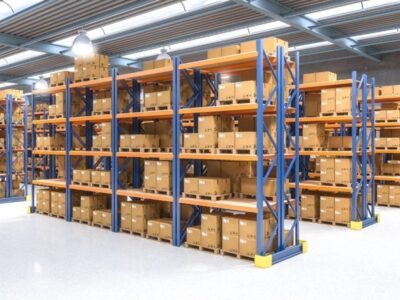With the global focus on sustainability, industries are turning to innovative ways to recycle plastic waste effectively. Industrial plastic recycling not only helps reduce environmental impact but also provides a cost-effective way to repurpose materials for further use. Below is a guide on how to efficiently manage industrial plastic recycling.
Understand the Types of Plastics
Efficient recycling starts with identifying and sorting different types of plastics. Common categories include:
- Thermoplastics: Such as polyethylene (PE), polypropylene (PP), and polyvinyl chloride (PVC), which can be melted and reshaped.
- Thermosetting Plastics: Like epoxy and phenolic resins, which are harder to recycle due to their chemical structure.
Sorting plastics by type ensures compatibility during the recycling process, leading to higher-quality recycled materials.
Implement Effective Sorting Techniques
Sorting is critical for recycling efficiency. Invest in advanced sorting technologies like:
- Near-Infrared (NIR) Spectroscopy: Identifies different types of plastics based on their molecular composition.
- Electrostatic Separation: Separates plastics with different electrostatic charges.
- Manual Sorting: Useful for distinguishing between large and visibly different materials.
Efficient sorting reduces contamination and improves the quality of recycled plastic.
Invest in Shredding and Granulating
Shredding plastics into smaller pieces is an essential step in recycling. Modern industrial shredders can handle high volumes and process plastics into uniform sizes, which are easier to clean and recycle. Granulators further refine shredded materials into pellets or flakes, which are ready for reprocessing.
Cleaning and Decontaminating Plastics
Contaminants like food residue, labels, and adhesives must be removed for successful recycling. This process typically involves:
- Washing Lines: High-pressure washing systems remove debris and contaminants.
- Chemical Treatments: Dissolve adhesives or tough residues without damaging the plastic.
- Float-Sink Separation: Uses water to separate plastics based on density.
Thorough industrial plastic recycling ensures that recycled plastics are free from impurities, making them suitable for various applications.
Utilize Advanced Recycling Technologies
Traditional mechanical recycling works well for many plastics, but advanced methods are gaining traction for better efficiency and versatility:
- Chemical Recycling: Breaks down plastics into their chemical components for reuse in manufacturing.
- Pyrolysis: Converts plastic waste into oil, gas, or other usable fuels through thermal decomposition.
- Hydrolysis: Uses water to break down plastic polymers into reusable monomers.
These methods are particularly useful for plastics that are difficult to recycle mechanically, such as mixed or multi-layered plastics.
Partner with Recycling Specialists
Collaborating with specialized industrial recycling companies ensures that plastic waste is managed effectively. These companies often provide:
- Collection Services: Streamlined pickup of industrial plastic waste.
- Custom Recycling Programs: Tailored solutions for specific industries or waste streams.
- Recycling Certifications: Documentation to demonstrate compliance with environmental regulations.
Working with professionals reduces the complexity of managing large-scale recycling operations.
Optimize Logistics and Storage
Efficient transportation and storage play a vital role in reducing the cost and environmental footprint of recycling. Key practices include:
- Compacting Plastic Waste: Use balers to compress waste for easier transport.
- Centralized Collection Points: Reduce logistics costs by consolidating waste at designated locations.
- Efficient Routing: Plan transportation routes to minimize fuel consumption and emissions.
Focus on Downcycling and Upcycling
Recycled plastics can be repurposed in various ways:
- Downcycling: Turning plastics into lower-grade products like park benches or insulation materials.
- Upcycling: Enhancing the value of recycled plastics by creating high-quality products, such as fabric for clothing or durable construction materials.
Choose the approach that aligns with your business goals and available technology.
Educate and Train Staff
Employee training is crucial for implementing an efficient recycling program. Educate your team on:
- Proper segregation techniques.
- Maintenance of recycling equipment.
- Compliance with safety and environmental standards.
Well-informed employees help maintain consistency and efficiency in recycling operations.
Monitor and Improve
Regularly evaluate the effectiveness of your recycling program. Use metrics like:
- Volume of plastic recycled.
- Contamination rates.
- Cost savings achieved through recycling.
Continuous improvement ensures that your recycling practices remain efficient and aligned with industry advancements.













Comments